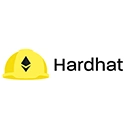Plugins play a crucial role in the Hardhat development framework by extending its functionality and providing additional tools that enhance the smart contract development workflow. They allow developers to customize their development environment, integrate third-party services, and automate various tasks. Below are the key roles of plugins in Hardhat:
1. Extending Functionality
Plugins enable developers to add new features to Hardhat without modifying its core code. This allows for a modular approach to development, where you can pick and choose the tools you need for your project.
For example, the hardhat-ethers plugin integrates the Ethers.js library, making it easier to interact with Ethereum contracts:
npm install --save-dev @nomiclabs/hardhat-ethers ethersAfter installation, you can include it in your hardhat.config.js file:
require("@nomiclabs/hardhat-ethers");2. Enhancing Testing
Plugins can improve the testing experience by providing additional assertions, coverage reports, and other testing utilities. For example, the hardhat-waffle plugin is often used for testing smart contracts with Chai assertions:
npm install --save-dev @nomiclabs/hardhat-waffleTo use it, add the following line to your configuration:
require("@nomiclabs/hardhat-waffle");3. Deployment and Verification
Plugins can simplify the deployment process and automate contract verification on block explorers. The hardhat-etherscan plugin is an example that allows you to verify your contracts on Etherscan easily:
npm install --save-dev @nomiclabs/hardhat-etherscanOnce installed, you can configure it in your hardhat.config.js file like this:
module.exports = {
etherscan: {
apiKey: "YOUR_ETHERSCAN_API_KEY"
}
};Then, you can verify your contracts using:
npx hardhat verify --network mainnet DEPLOYED_CONTRACT_ADDRESS "Constructor Argument 1" "Constructor Argument 2"4. Gas Reporting
Plugins can also help you analyze the gas consumption of your contracts. The hardhat-gas-reporter plugin provides detailed reports of gas usage:
npm install --save-dev hardhat-gas-reporterTo configure it, add the following to your hardhat.config.js file:
require("hardhat-gas-reporter");
module.exports = {
gasReporter: {
enabled: true,
currency: 'USD',
},
};5. Custom Plugins
Developers can also create their own plugins to suit specific needs. A custom plugin can encapsulate repetitive tasks or specific configurations that are unique to your project. Here’s a basic structure for a custom Hardhat plugin:
task("greet", "Prints a greeting message")
.addParam("name", "The name to greet")
.setAction(async (taskArgs) => {
console.log(`Hello, ${taskArgs.name}!`);
});
module.exports = {}; // Export the pluginAfter defining the task, you can run it
npx hardhat greet --name "World"This will output:
Hello, World!Conclusion
Plugins are an integral part of the Hardhat ecosystem, allowing developers to enhance their development experience by adding new features, improving testing, simplifying deployment, and providing valuable insights into gas usage. By leveraging existing plugins or creating custom ones, developers can tailor their Hardhat environment to meet the specific needs of their projects, ultimately leading to more efficient and effective smart contract development.

